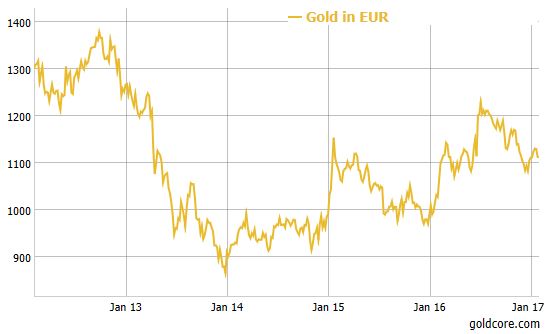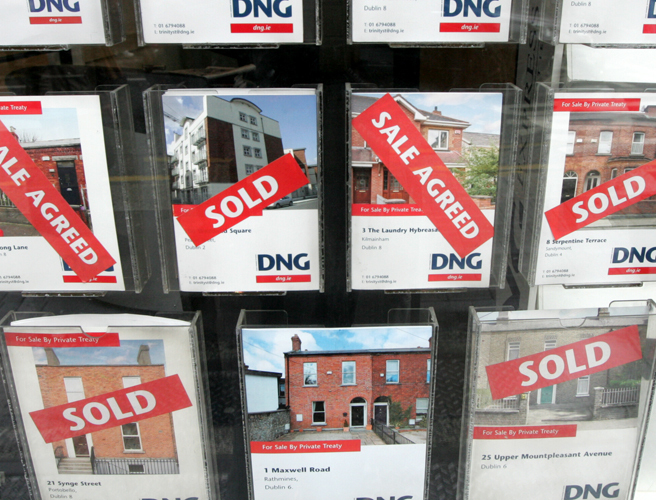2017 could be the year that the euro collapses according to Joseph Stiglitz writing in Fortune magazine and these concerns were echoed over the weekend by former Bundesbank vice-president and senior European Central Bank official, Jürgen Stark, when he said that the ‘destruction’ of the Eurozone may be necessary if countries are to thrive again. Stark and Stiglitz are too of many respected commentators, from both the so called right and the so called left, who are warning that the common currency and the Eurozone itself will not survive the financial and political turmoil already besetting the European monetary union and set to deepen in the coming months and years. According to Stiglitz: Greece remains in a severe depression. Growth for the Eurozone over the past year has been an anemic 1.6%, and that number is twice the average growth rate from 2005 to 2015. Historians are already speaking of the Eurozone’s lost decade, and it’s possible they’ll soon be writing about its last decade, too. The euro was introduced in 2002, but the cracks in the single currency arrangement, which began in 1999, became evident with the 2008 global financial crisis.
Topics:
Mark O'Byrne considers the following as important: Daily Market Update, Featured, GoldCore, newslettersent
This could be interesting, too:
Nachrichten Ticker - www.finanzen.ch writes Die Performance der Kryptowährungen in KW 9: Das hat sich bei Bitcoin, Ether & Co. getan
Nachrichten Ticker - www.finanzen.ch writes Wer verbirgt sich hinter der Ethereum-Technologie?
Marc Chandler writes March 2025 Monthly
Mark Thornton writes Is Amazon a Union-Busting Leviathan?
| 2017 could be the year that the euro collapses according to Joseph Stiglitz writing in Fortune magazine and these concerns were echoed over the weekend by former Bundesbank vice-president and senior European Central Bank official, Jürgen Stark, when he said that the ‘destruction’ of the Eurozone may be necessary if countries are to thrive again.
Stark and Stiglitz are too of many respected commentators, from both the so called right and the so called left, who are warning that the common currency and the Eurozone itself will not survive the financial and political turmoil already besetting the European monetary union and set to deepen in the coming months and years. According to Stiglitz:
|
Gold in EUR |
| Indeed, Greece and many periphery nations remain borderline or actually insolvent and this inconvenient truth has been largely ignored in recent months as it would clash with the cosy, and complacent, Eurozone “recovery” narrative.
The recovery is unsustainable as the root cause of the crisis – humongous levels of debt in Greece, Spain, Italy, Portugal and Ireland – was not dealt with rather the debt can was simply kicked down the road. France, a nation with its own debt and economic issues, warned last week that the “window of opportunity” for a debt deal is closing after Athens and its creditors failed to find a solution to the country’s deadlocked bailout last week. French Finance Minister Michel Sapin warned that the coming volatile elections in Europe in 2017 would soon dominate the agenda and may make it much harder for Greece to reach a new ‘bailout’ deal. Jeroen Dijsselbloem who heads the Eurozone’s Finance ministers also said: “there is a clear understanding that a quick finalization of the second [bailout] review is in everyone’s interest” as reported by the Wall Street Journal. However, others such as Stark believe that eurozone “must break up if its members are to thrive again.” Stark, who served on the ECB’s executive board during the financial crisis, said it was time to “think the unthinkable” and work towards a “reset” of Europe that pulled power away from Brussels as reported by the Telegraph. |
|
| He said the creation of a two-speed eurozone, with France and Germany at its core, would help to ensure the smaller bloc’s survival and he said that the current eurozone may need to be destructed in order to create a new “two-speed eurozone, with France and Germany at its core”.
This “would help to ensure the smaller bloc’s survival.” Stiglitz conclusion, in a little noticed or commented upon article in Fortune magazine is also not optimistic and underlines the importance of being properly diversified and not having all your eggs in the euro basket – be that euro bank deposits in Eurozone banks or indeed euro denominated assets. Stiglitz concludes by warning that:
The full article can be read on Fortune here Whether we like it or not, there is an increasing possibility that there may be a return to national currencies in Europe. Periphery nations savers and investors are particularly exposed in this regard. Gold is an important hedging instrument and financial insurance that will protect people from the potential return to liras, drachmas, escudos, pesetas and punts. Hoping for the best but diversifying and being prepared for less benign financial outcomes remains prudent. |
Gold and Silver Bullion – News and Commentary
Gold up on weaker dollar, sluggish U.S. economic data (Reuters.com)
Dollar Slips After Trump Move, Asia Stocks Decline (Bloomberg.com)
Gold Goes Cold Turkey as Chinese Stop Buying for Year of Rooster (Bloomberg.com)
U.S. Economic Growth Cools on Biggest Trade Drag Since 2010 (Bloomberg.com)
New “Housing Bubble” Developing In Dublin (NewsTalk.com)
Tags: Daily Market Update,Featured,newslettersent


